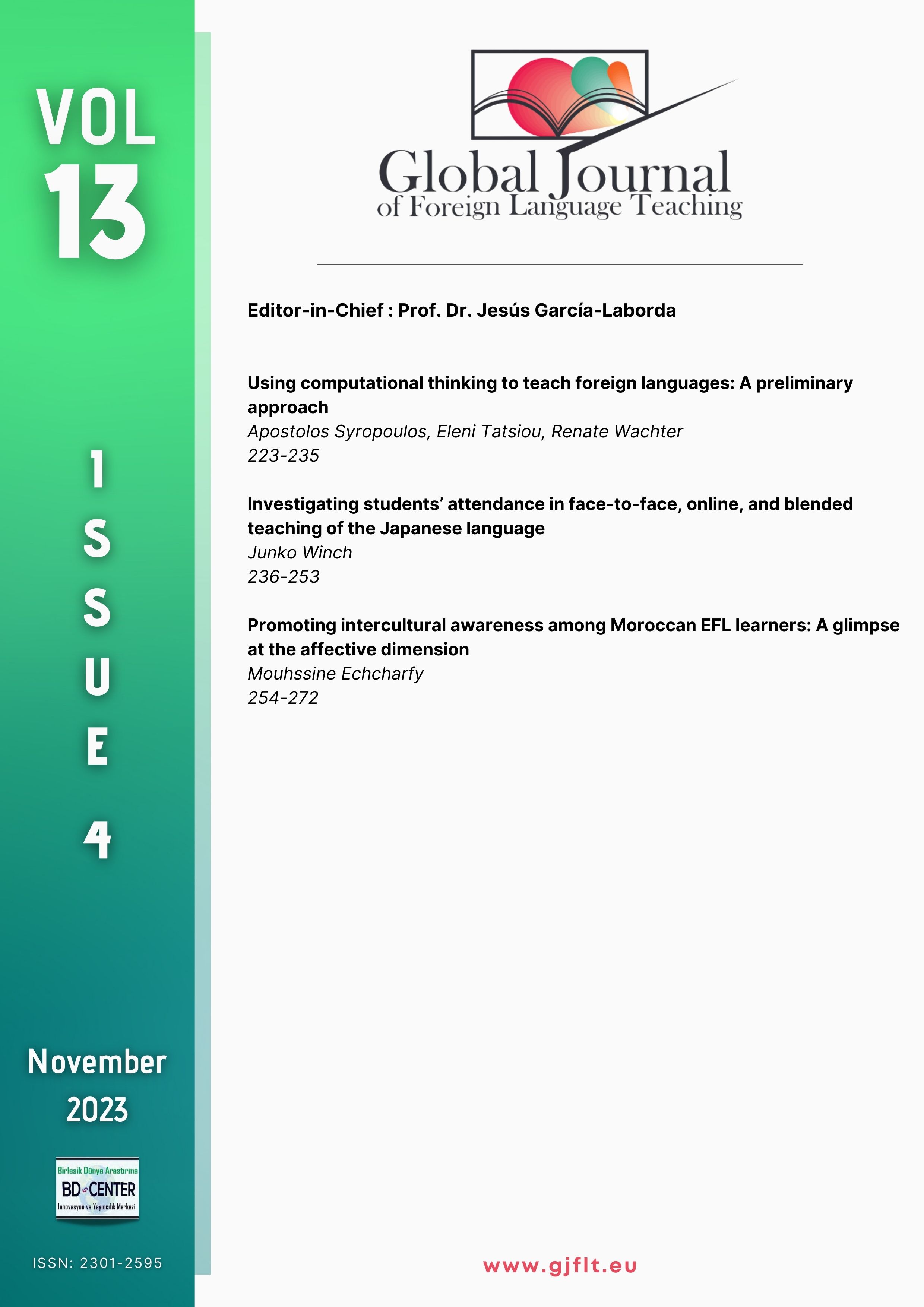Promoting intercultural awareness among Moroccan EFL learners: A glimpse at the affective dimension
Main Article Content
Abstract
The present study aims to explore the extent to which the teaching of Reading Comprehension and Précis II, using intercultural topics along with intercultural tasks enhances Moroccan University EFL learners’ intercultural awareness in the area of attitudes or savoir-être. To this end, a quasi-experimental mixed-methods design was adopted. Two data collection tools were employed, namely an intercultural test, and a semi-structured interview. In light of convenience sampling, the study included 98 participants who were assigned to an experimental and a control group. The results revealed that there was a significant difference between attitudes towards cultural diversity in the sample groups. The findings also showed that there was a statistically significant increase in students’ mean scores after the administration of the experiment. This indicates that students in the experimental group outperformed students in the control group. Pedagogical implications are provided for quality assurance.
Keywords: Attitudes; intercultural awareness; Moroccan EFL learners; reading comprehension and précis II
Downloads
Article Details

This work is licensed under a Creative Commons Attribution-NonCommercial-NoDerivatives 4.0 International License.
Authors who publish with this journal agree to the following terms:- Authors retain copyright and grant the journal right of first publication with the work simultaneously licensed under a Creative Commons Attribution License that allows others to share the work with an acknowledgement of the work's authorship and initial publication in this journal.
- Authors are able to enter into separate, additional contractual arrangements for the non-exclusive distribution of the journal's published version of the work (e.g., post it to an institutional repository or publish it in a book), with an acknowledgement of its initial publication in this journal.
- Authors are permitted and encouraged to post their work online (e.g., in institutional repositories or on their website) prior to and during the submission process, as it can lead to productive exchanges, as well as earlier and greater citation of published work (SeeThe Effect of Open Access).
